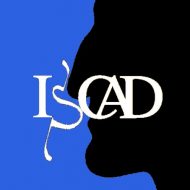Thursday October 15, morning
Fr. Madden Hall, Carr Hall, St. Michael’s College
100 St Joseph Street, Toronto
Participation: open
9.30–10.00: Coffee
10.00–11.00: Welcome and Opening Remarks
S. Akbari (U of T-CMS), S. Bancheri (U of T–Goggio chair), E. Brilli (U of T), F. La Marca (Hon., Electoral College North and Central America), M. Lettieri (U of T-Mississauga), J. Magee (Vice-dean, Faculty of Arts & Science, U of T), G. Pastorelli (Consolato Italiano a Toronto), A. Ruggera (Istituto Italiano di Cultura).
11.00–12.30: Figura I – Keynote Lecture
- Chair
- Justin Steinberg (University of Chicago)
- Speaker
- Brian Stock (University of Toronto): Auerbach’s « Figura » and Ancient Literary Imagination
12.30–2.30: Lunch Break
Thursday October 15, afternoon
Fr. Madden Hall, Carr Hall, St. Michael’s College
100 St Joseph Street, Toronto
Participation: open
2.30–5.00: Figura II – session
- Chair
- Suzanne Akbari (University of Toronto & Centre for Medieval Studies)
- Speakers
- Martin Eisner (Duke University): Dante and the Philology of World Literature: Auerbach’s Figura of Literary History
- Katherine Lauren Travers (New York University): Beatrice: “Figura” and the Performance of Conversion
- Warren Ginsberg (University of Oregon): Translation, Poetry, and Figura: Statius and Bonagiunta
- Respondent
- Marco Lettieri (University of Toronto)
Thursday October 15, evening
Pontifical Institute of Mediaeval Studies
59 Queen’s Park Crescent East, Toronto
Participation: reserved (conference delegates)
5.30: Welcome to PIMS & Reception
- Moderator
- Ann M. Hutchison (PIMS)
- With the participation of
- Richard Alway (PIMS, Praeses)
- Jonathan Black (PIMS)
- Greti Dinkova-Bruun (PIMS)
- James K. Farge (PIMS)
- Dorothea Kullmann (University of Toronto and Co-editor of the series “Toronto Studies in Romance Philology”)
Michèle Mulchahey (PIMS)
Stephen Pelle (PIMS)
Franco Pierno (University of Toronto and Co-editor of the series “Toronto Studies in Romance Philology”)
- Fred Unwalla (PIMS, Publications, Editor-in-Chief)
Friday October 16, morning
Fr. Madden Hall, Carr Hall, St. Michael’s College
100 St Joseph Street, Toronto
Participation: open
9.00–9.30: Coffee
9.30–11.00: Struttura/Poesia I –– Keynote Lecture* (rescheduled – videoconference)
Chair
William Robins (Victoria University & University of Toronto)
Speaker
Alberto Asor Rosa (Università di Roma “La Sapienza”)
Struttura e Poesia nella “Commedia” di Dante. Una questione antica rivisitata alla luce dell’esperienza.
- 11.00–11.30: Coffee Break
11.30–1.00: Struttura/Poesia II – session
- Chair
- Michael Lettieri (University of Toronto Mississauga)
- Speakers
- Leyla Livraghi (Università di Pisa): La bolgia dantesca dei ladri (Inf. 24-25): ideologia e tecnica
- Simone Invernizzi (Università degli Studi di Milano): Ancora crociani negli anni Sessanta? La dialettica poesia/struttura in Gianfranco Contini e Pier Paolo Pasolini
- Respondent
- Johnny Bertolio (University of Toronto)
1.00–2.30: Lunch Break
Friday October 16, afternoon
Thomas Fisher Rare Book Library
120 St George St, Toronto
Participation: reserved (conference delegates)
2.30–3.30: Welcome and Visit
With the participation of
David Fernández (Thomas Fisher Rare Book Library, University of Toronto Libraries)
Miguel Torrens (Collection Development Department, University of Toronto Libraries)
Friday October 16, evening
Istituto Italiano di Cultura
496 Huron Street, Toronto
Participation: open
4.00–5.30: Struttura/Poesia III – session** (rescheduled)
-
- Chair
- Elisa Brilli (University of Toronto)
- Speakers
- Joseph Nagy (Eötvös Lorand University): Riflessioni critiche sulla distinzione tra struttura e poesia in connessione al canto XI dell’Inferno
- Kristen Allen (University of Toronto): The Sospiri of the Sospesi: poesia and moralia in Dante’s Inferno
- Respondent
- Sylvia Gaspari (University of Toronto)

